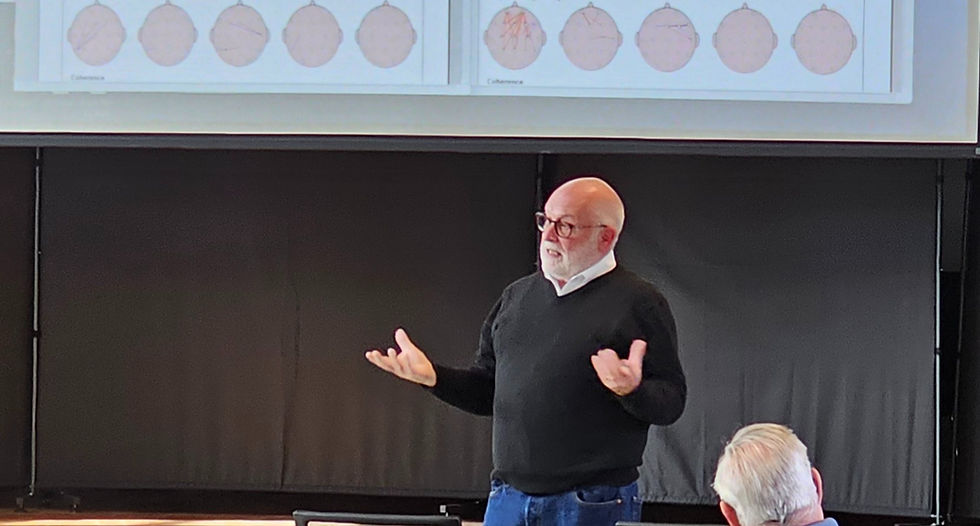Everyone at my sober house is in a different place. What happens to my brain after I get sober?
- Lisa Ferguson
- Feb 21, 2024
- 2 min read
Updated: Jun 28, 2025
After one month of abstinence, the brain of someone recovering from substance use disorder shows reduced activity compared to a healthy control. I remember being alarmed when I was two or three months sober. I felt like I was not regaining anything and in fact, it felt like I was actually stupider than when I was drunk. My sponsor assured me that this was normal because my brain organizational chart had lost several key employees, namely alcohol and THC and was trying to reorganize. She was right, I did start thinking more clearly in a few more months. It was after 14 months of abstinence, that my brain began to return to a healthier baseline. In our sober houses, most people at this point suddenly realize their odds have significantly improved and they feel like they're going to make it. Here's what happens next. Specifically, the dopamine transporter levels in the brain’s reward center (nucleus accumbens) start to normalize, allowing for a nearly normal level of functioning. As the brain gets healthier, a peace surrounds them. The sober house atmosphere is noticeably even more serene when they enter a room.
Groundbreaking research has also revealed that individuals who abstain from alcohol for approximately 7.3 months exhibit significant improvements in brain structure, indicating remarkable potential for recovery. I always tell families that if they are happy with the progress now, wait until 7 months. Not only are they learning how to initiate and maintain healthier, workable relationships as brain health improves, but their attitude toward life is changing. During this period of sobriety, the brain gradually heals and regains function. In the sober house, our residents speak with more confidence, ask more interpersonal questions, show more consideration for others and generally are able to get things done that need doing, often in stark contrast to just a few months ago.
Working memory, visuospatial functioning, and attention all improve, accompanied by increases in brain volume. So, even after years of alcohol misuse, the brain can experience remarkable cognitive improvements and partial restoration with sustained sobriety.
At our sober house, we are always reminding people that recovery is a journey, and the brain’s adaptability and ability to heal plays a crucial role in overcoming addiction. Call your sponsor, eat right and exercise, don't drink or do drugs and go to meetings is our mantra to them. Take care of your dopamine and it will care for you.

.




Comments